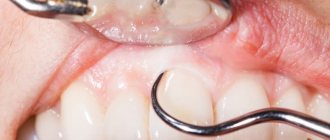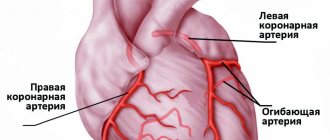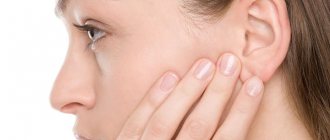A foreign taste in the mouth not only causes discomfort and prevents you from enjoying your favorite food, but also often indicates health problems.
The occurrence of a metallic taste in the mouth is familiar to a large number of people: this sensation is not the most pleasant, but not all of those who have encountered it try to find out its cause. There is nothing wrong with if the iron taste in the mouth appears once, but if it occurs periodically, then the reasons for this phenomenon should be found out.
Quite often you can hear complaints about a metallic taste in the mouth: why does it appear and how to get rid of it?
The reasons that cause an iron taste in the mouth can be very different: when faced with this symptom, you need to try to determine how often it occurs, and whether it is accompanied by any other signs.
First of all, it is worth clarifying what a metallic taste in the mouth is: it is unlikely to confuse this phenomenon with anything else, since it is a pronounced bitter taste with sour notes - a fairly accurate understanding of this taste can be obtained by touching the battery with your tongue . Often the appearance of such a taste is accompanied by an astringent sensation in the mouth and tingling of the tongue (partial numbness is also possible).
Metal taste as a symptom of oral diseases
Patients with gum problems often complain of a strong metallic taste that occurs repeatedly throughout the day. The most popular diseases that provoke such unpleasant sensations include periodontitis and gingivitis, which are accompanied by bleeding gums, and many people describe the taste of blood as metallic. It usually appears during brushing your teeth and after eating. Some patients feel as if there is a foreign body in the mouth, which causes serious inconvenience.
Loose teeth and tartar build-up can also cause a metallic taste. There is no point in trying to independently identify the causes - it is better to immediately contact a dentist.
Prevention
Prevention of the appearance of ammonia odor from the mouth in adults involves systematic, proper daily oral hygiene, a balanced diet, good sleep, rest, and moderate physical activity. Stick to a routine, daily routine, give up bad habits.
Advice! In addition to teeth, you need to thoroughly clean your tongue to prevent the activity of pathogenic flora.
In pursuit of ideal forms, you should not get carried away with “hard” protein, carbohydrate-free diets. Drink up to two liters of fluid daily. The diet should contain fresh fruits, vegetables, herbs, fresh juices, healthy grains, and foods rich in fiber. Nutrition should be balanced, healthy, nutritious.
Be careful about your health. Visit your dentist, gynecologist, or therapist twice a year. When the first alarming symptoms appear, signaling the development of any diseases, do not delay your visit to the medical center. Remember, it is easiest to prevent serious disorders in the body in the initial stages of the disease!
ONLINE REGISTRATION at the DIANA clinic
You can sign up by calling the toll-free phone number 8-800-707-15-60 or filling out the contact form. In this case, we will contact you ourselves.
If you find an error, please select a piece of text and press Ctrl+Enter
Why there is an iron taste in the mouth: reasons not related to disease
If you notice an iron taste in your mouth, you should not immediately panic: there is a possibility that the unpleasant sensation is not associated with diseases.
It may appear due to:
- drinking mineral water with salts (often this product is enriched to compensate for iron deficiency in the body);
- drinking low quality drinking water (for example, supplied to the home through old rusty pipes);
- tongue piercing (the sensation appears as a result of the metal reacting with certain foods);
- using cast iron and aluminum cookware when preparing and eating food.
Other causes of urine odor from the mouth
Protein diets, prolonged fasting, monotonous, unbalanced nutrition, drinking a small amount of liquid per day often lead to disruption of water-salt and electrolyte balance. If a large amount of protein food enters the body, the load on the kidneys and liver increases significantly.
Medicines, protein complexes, and nutritional supplements can also cause bad breath. Especially if pharmacological preparations, mineral and vitamin complexes contain nitrogen-containing substances, amino acids, and proteins.
Abuse of alcohol, drugs, and bad habits lead to irreversible consequences in the body and provoke the development of various systemic pathologies and functional disorders.
A constantly emanating uremic aroma indicates a violation of biochemical processes in our body. Therefore, in order to eliminate and neutralize the stench, it is important to establish the root cause of ammonia “amber”.
Medical causes of metallic taste
If a metallic taste appears in the mouth, this may indicate illness. Their list is very extensive. To make it easier to classify, diseases can be divided into two groups: dental and non-dental.
Diseases that lead to a metallic taste, which are systemic in nature and are not associated with teeth and gums, are as follows:
- diseases of the ENT organs (sinusitis, otitis, laryngitis, etc.);
- lung diseases (pneumonia, tuberculosis);
- diseases of the gastrointestinal tract (gastritis, cholecystitis);
- diseases affecting the nervous system (sclerosis, tissue tumors);
- anemia due to deficiency of iron or B vitamins.
It is not uncommon for a metallic taste to accompany diseases that develop in the oral cavity. These include:
- stomatitis (the mucous membrane of the oral cavity becomes inflamed, which is often accompanied by the formation of small ulcers);
- gingivitis (inflammation of the gums);
- periodontitis (the disease appears as a result of advanced gingivitis, when the infection no longer affects the external tissues, but the periodontium);
- glossitis (formation of plaque on the tongue, its inflammation).
Another common cause of taste associated with the oral cavity and dentistry is the installation of crowns and dentures. The appearance of a taste in this case is normal, provided that it goes away within 1-2 months. A sign that adaptation to the structure in the mouth has not occurred is unpleasant sensations in the form of tingling of the tongue, burning, and a feeling of dryness.
News
Metallic taste in the mouth – causes of iron taste in the mouth
A person may experience salty, sweet, bitter and sour tastes for no apparent reason. But most often people are bothered by the taste of metal.
Metal taste in the mouth in women: symptoms
- Metallic taste in the mouth in women with anemia
- Metallic taste in the mouth in women due to hormonal changes
- Metallic taste in the mouth of women with disorders of the gastrointestinal tract, liver and biliary tract
- Metallic taste in the mouth in women with diseases of the ENT organs
- Metallic taste in the mouth in women with oral diseases
causes of metallic taste in mouth
There can be many reasons that cause an iron taste in the mouth. A similar condition can be achieved by drinking mineral water, which contains a large amount of iron ions. Untreated tap water can have a similar effect. - poor quality of the pipes through which it passes. It's no secret that most of them are covered inside with rust, particles of which are often mixed with “life-giving moisture.”
- use of cast iron or aluminum cookware for cooking. Especially if you cook foods containing acids in such containers. In this case, the acids react with metals and the dishes acquire a specific taste, which is subsequently felt in the mouth.
- medications. For example, a metallic taste is a side effect of Tetracycline, Metronidazole, Lansporazole and many other drugs, a consequence of taking some dietary supplements. Accordingly, as soon as the course of treatment with them is completed, the unpleasant sensations will disappear.
— Not often, but metal crowns still give a taste of iron, especially if they begin to deteriorate. Under the influence of acids, metal ions are formed and create a specific taste.
drinking mineral water, which contains a large amount of iron ions. Untreated tap water can have a similar effect. - poor quality of the pipes through which it passes. It's no secret that most of them are covered inside with rust, particles of which are often mixed with “life-giving moisture.”
Diseases that can cause a metallic taste in the mouth
. Let's look at the most common ones.
Anemia
Oddly enough, a lack of iron in the body, or anemia, very often causes a metallic taste in the mouth. In addition, its presence may be indicated by weakness, drowsiness, dizziness and headaches, loss of strength, rapid heartbeat, and the disease is often accompanied by impaired sense of smell and taste. In more severe cases, severe pallor, dry skin, brittle hair and nails, a feeling of dry mouth, cracks in the corners of the lips.
Find out why Detralex is the No. 1 drug for the treatment of varicose veins.
Watch again
To learn more
Often, anemia is caused by gastrointestinal diseases, hidden or obvious bleeding, unbalanced nutrition and an increased need for iron in the body - during periods of intensive growth, breastfeeding or childbearing. By the way, this is precisely what explains why a metallic taste in the mouth occurs so often during pregnancy.
— Hypovitaminosis
Hypovitaminosis develops due to a lack of vitamins in the body. Signs of this condition include a metallic taste, increased fatigue, sleep disturbances, irritability, and decreased intellectual and physical abilities. In this case, the main method of treatment is taking vitamin complexes and adjusting the diet.
— Diseases of the digestive system
Problems with the digestive system are often accompanied by unpleasant tastes in the mouth, including metallic ones. Its occurrence may indicate the presence of diseases such as:
- Gallbladder diseases (cholangitis, dyskinesia, cholecystitis, etc.). Signs of these diseases are pain in the right hypochondrium, stool disorders, and a metallic or bitter taste in the mouth.
- Most liver diseases . They are usually accompanied by nausea, loss of appetite, weight loss, changes in taste, and often a metallic taste occurs.
- Reduced stomach acidity . In addition to the taste of iron in the mouth, low acidity is usually indicated by belching with an odor reminiscent of a rotten egg, bloating, dull pain after eating, constipation, or vice versa, diarrhea, heartburn.
- Intestinal diseases . They are often accompanied by a coating on the tongue.
- Stomach ulcer . This problem can be signaled by severe pain, often occurring on an empty stomach or at night, vomiting, belching, heartburn. This condition may also be accompanied by a metallic taste.
oral diseases
- inflammatory disease of the tongue - glossitis, the development of which can be facilitated by all kinds of injuries, too hot food, alcohol, hot spices, burns, etc. - appears due to bleeding gums . Moreover, even the most minor bleeding that is not visually noticeable can provoke it. — the cause of this phenomenon is often stomatitis, gingivitis, periodontal disease and other problems of the oral cavity.
Fungal infection of ENT organs
— Protracted otitis media, pharyngitis, laryngitis, sinusitis or sinusitis are not always signs of severe bacterial or viral inflammation; they are often caused by fungal infections. In addition to a metallic taste in the mouth, depending on the fungal infection of a particular organ, this condition may be accompanied by the following symptoms:
- soreness and dry mouth , increased sensitivity of the mucous membrane to hot, salty or spicy foods, white plaque on the tonsils or oral mucosa;
- discharge from the ear, pain and hearing loss, noise and itching in the ears;
- heaviness and pain in the paranasal sinuses, nosebleeds;
- dry cough and voice changes;
The taste of metal in the mouth, combined with severe abdominal pain, dizziness, increased thirst, nausea, and muscle pain, is usually a symptom of poisoning with metals or their salts. For example, such consequences can result from the ingestion of lead, arsenic, mercury, copper salts, etc. If you have such signs, you should definitely consult a doctor, since poisoning with such substances can lead to serious consequences, sometimes even death.
Diabetes
The taste of iron in the mouth, the causes of which lie in the presence of diabetes, is usually accompanied by increased dryness in the mouth and a constant feeling of thirst. These symptoms may include blurred vision, increased appetite, and itchy skin. If you have such signs, you need to get tested as soon as possible to determine your blood sugar level.
How to get rid of a metallic taste in your mouth
If you dream that an unpleasant metallic taste will never bother you again, you need to understand the reasons that contributed to its appearance. To do this, you should visit a doctor, undergo an examination and, if necessary, treat diseases. You can temporarily eliminate this unpleasant phenomenon using simple home remedies:
- Eat a slice of lemon or rinse your mouth with slightly acidified water.
- Prepare a solution of half a glass of water and a teaspoon of salt, and then rinse your mouth with it several times.
- Spices can help get rid of the unpleasant aftertaste. Cinnamon, cardamom and ginger work best with this. They can be simply chewed or added to teas.
- Eat more fruits and vegetables. Tomatoes, grapefruits, lemons, tangerines and oranges are especially useful in combating the metallic taste in the mouth. These products increase the secretion of saliva and thereby help eliminate discomfort.
- Many people find that sweet-tasting foods help reduce the annoying taste of iron.
In addition, pay enough attention to oral hygiene. Try to brush your teeth every time after eating. Don’t forget to clean your tongue as well, because it accumulates a lot of bacteria that can cause discomfort in the oral cavity. Also floss daily.
Causes of metallic taste in the mouth in women
It is women who often turn to the doctor with complaints about the unpleasant sensation of the taste of iron in the mouth. This is not surprising, since for the most part they more closely monitor the health and changes in the body’s reactions, and also have the strongest organoleptic sensitivity.
Usually, the metallic taste on the tongue appears unexpectedly and also disappears suddenly. This is often associated with unusual and new products. Sometimes the unpleasant taste does not go away for a long time after its occurrence, which causes a woman to become worried, because she does not understand what it means and indicates some kind of problem.
Various factors influence the occurrence of iron taste:
- hormonal changes - the changes occurring in the female body owe much to hormones: progesterone and estrogen;
- diet – the specificity and imbalance of the products used can cause taste changes;
- taking medications – medications entering the body (tetracycline antibiotics, metronidazole, feramide and some dietary supplements) can cause side effects, one of which is a metallic taste in the mouth;
- consumption of sweeteners and sweeteners (saccharin), as well as certain types of mineral water.
Metallic taste during pregnancy
Some women say that a sudden metallic taste in the mouth is a sign of pregnancy. This statement has no justification, however, even during the period of bearing a baby, a change in taste in the oral cavity is possible, for which there are several reasons.
A couple of days after a woman finds out that she is pregnant, and before 12-14 weeks of gestation, serious changes occur in the mother's body.
- Hormonal background – the balance of estrogen and progesterone changes, which affects the expectant mother’s taste sensations.
- Enhanced sense of smell – due to altered hormonal levels, there is a clearer and stronger perception of smells, and this, as we know, is directly related to the perceived taste of food.
- Vitamin complexes - prenatal vitamins can affect the taste in the mouth due to the minerals and other beneficial components they contain.
- Gastroesophageal reflux - frequent vomiting, nausea and belching of gastric contents can cause an unpleasant metallic taste.
Common Causes of Iron Taste in the Mouth in Both Men and Women
- tap water - drinking water from the tap without using filters can disrupt the functioning of the body, because the condition of the pipes leaves much to be desired: they are covered with rust, are rarely cleaned, additives used to purify water settle on the walls;
- aluminum cookware - cooking food in a cast iron or aluminum pan can cause a taste disorder after eating;
- poisoning – the ingestion of salts of heavy metals, such as lead, mercury, and arsenic compounds, into the body can cause serious disorders. In this case, dizziness, general weakness, signs of intoxication, nausea, severe pain in the muscles and abdomen are noted. This means that you should definitely visit a doctor, because such poisoning can be harmful to health and life-threatening;
- after suffering from a cold - having had an acute respiratory viral infection, many patients say that when they cough they feel the taste of iron in their mouth. You should visit a pulmonologist, as this sign may indicate developing inflammation of the bronchi;
- tooth replacement structures - if there are crowns made of different types of metal in the oral cavity, this can cause oxidation of one of them, while the patient feels his tongue go numb and also complains of a sour metallic taste;
- bleeding gums – after brushing your teeth in the morning, you may experience a metallic taste in your mouth due to blood, because it contains iron ions;
- low acidity of the stomach - in addition to the taste of iron, a violation is indicated by belching and pain after eating;
- Electronic cigarettes are a popular way for men to quit nicotine; when smoking, vaping occurs (steam is released), and if the device is poorly made, a metallic taste in the mouth is possible.
Why is there a metallic taste in the mouth and due to what diseases?
The resulting taste of metal sometimes signals that a malfunction has occurred in the body’s functioning and some kind of disease has appeared. There are a great many diseases accompanied by this unpleasant symptom. We will try to analyze in detail the most common of them:
- anemia - iron deficiency in the body can manifest itself not only as a metallic taste in the mouth. This disease causes dry skin, brittle hair and nails. The patient experiences headaches from low blood pressure, weakness, and increased heartbeat. Anemia often occurs against the background of gastric diseases, hidden bleeding, and malnutrition;
- diseases of the digestive system - the gastrointestinal tract is directly related to the oral cavity, so many diseases are reflected in changes in taste sensations. With gallbladder pathology, there is pain in the right hypochondrium, difficulty defecating, and there is also a bitterness in the mouth. If the liver is concerned, the patient has no appetite due to a feeling of nausea, which results in weight loss. In case of intestinal diseases, a plaque on the back of the tongue is often associated with the taste of iron. When a patient is diagnosed with a stomach ulcer, this is accompanied by severe pain, bloody vomiting is possible, which causes a taste disturbance;
- hypovitaminosis - insufficient intake of vitamins affects health, a metallic taste occurs, a person feels tired, irritated, and mental and physical indicators also decrease;
- diabetes mellitus - this pathology also contributes to the formation of a metallic taste. In addition, dry mouth, severe thirst, possible itching of the skin, increased appetite and decreased vision occur. If such symptoms occur, you should consult a doctor and measure the amount of sugar in your blood;
- otorhinolaryngological diseases - when the ENT organs are affected by a fungus, an unpleasant taste sensation occurs, in addition there is dry mouth, as well as a disturbance in the perception of taste of salty, sweet and bitter foods. There may be a cough and discomfort in the throat and paranasal sinuses.
- uncontrolled use of dietary supplements or drugs for weight loss - exceeding the recommended dose of vitamins, dietary supplements or taking uncertified drugs for weight loss can also cause poisoning of the body, one of the symptoms of which will be a metallic taste in the mouth;
- long-term dehydration - sometimes women, in order to lose weight or get rid of edema, reduce the amount of fluid they consume, which is why they develop dehydration, manifested by dry mouth, dizziness, weakness and a metallic taste in the mouth.
- long-term wearing of metal watches , bracelets or other massive jewelry - with constant contact of the skin with metal, metal ions may penetrate into the body, the excess of which causes the appearance of a metallic taste;
- occupational hazards – working with heavy metals in production or mining can cause a metallic taste in the mouth, in the absence of other signs of the disease.
In addition to the reasons described above, a metallic taste in the mouth may appear due to the following diseases:
- Anemia – it is iron deficiency in the body that most often causes an iron taste in the mouth. Iron deficiency occurs in approximately half of women of reproductive age, children during periods of active growth, and people suffering from diseases of the gastrointestinal tract. With anemia, in addition to the taste of iron, the patient's performance decreases, weakness, headaches, dry skin and mucous membranes, brittle hair and nails appear. Oral diseases - gingivitis, stomatitis, periodontitis, glossitis and even caries - can cause an unpleasant taste in the mouth. In addition to the metallic taste, bleeding gums, increased sensitivity of tooth enamel, and bad breath are common concerns.
- Diseases of the gastrointestinal tract - gastritis, stomach ulcers with low acidity, diseases of the intestines, gall bladder and liver are often accompanied by belching, heartburn and an unpleasant taste in the mouth.
- Diseases of the ENT organs - chronic sinusitis, otitis, pharyngitis and sinusitis - can also cause a metallic taste. If the disease cannot be treated with traditional means, and in addition to the usual symptoms of the disease, the patient develops bad breath and a metallic taste in the mouth, it is necessary to rule out a fungal infection.
- Diabetes mellitus - a strong iron taste that does not go away for a long time can be caused by an increase in blood glucose concentrations. Therefore, if, in addition to an unpleasant taste, the patient is worried about weakness, extreme thirst, increased sweating, or a sharp increase or decrease in weight, it is necessary to urgently do a blood test to determine blood sugar levels.
- Hypovitaminosis - a decrease in the concentration of B vitamins, vitamin C, E and some others, in addition to weakness, sleep disturbances, appetite and general deterioration, can also cause an unpleasant taste in the mouth.
- Allergic reactions - sometimes, due to inflammation and swelling of the mucous membrane, taste buds stop working normally, which can result in changes in the taste of familiar dishes and the appearance of an unpleasant taste in the mouth.
- Neurological disorders - any pathology of the central nervous system or peripheral nerves can lead to changes in taste sensations, including the appearance of an unpleasant taste in the mouth.
- Neoplasms - in some cases, a metallic taste in the mouth becomes the first symptom of a tumor growing inside the body, to which the patient pays attention. With neoplasms, patients may experience weakness, loss of appetite, sudden weight loss, headaches and an unpleasant taste in the mouth.
10. Heavy metal poisoning - sometimes a metallic taste in the mouth indicates a serious dysfunction that occurs when large amounts of arsenic, mercury, lead, cadmium, vanadium and other dangerous components enter the body. If, in addition to a metallic taste, you experience symptoms such as dizziness, thirst, abdominal pain, vomiting, loss of consciousness, blurred vision or tremors, you should seek medical help as soon as possible. Poisoning with such substances can cause severe complications or even death of the patient.
But if the cause of the metallic taste is pregnancy, neurology, or other non-pathological conditions, you can try to get rid of it at home. To do this you need:
- rinse your mouth more often with slightly acidified water or water with lemon juice;
- pay more attention to oral hygiene and use dental floss after every meal;
- drink tea with the addition of cinnamon, cardamom or ginger - all these spices can also be simply chewed in between meals;
- add citrus fruits to your diet - oranges, tangerines, grapefruits and lemons will help refresh your mouth and get rid of the unpleasant taste for several hours;
- replace metal utensils with high-quality ceramics or utensils with a special coating;
- use only purified water for drinking and cooking;
- from time to time, suck on mint candies and cough lozenges - mint candies or lollipops will help you quickly get rid of not only the taste, but also bad breath, but abusing this remedy, of course, is not recommended.
Metallic taste in the mouth due to diseases of the digestive system
The cause of a metallic taste in the mouth is most often associated with diseases of the gastrointestinal tract and liver. The presence of this symptom is especially characteristic of chronic gastritis with increased secretory function and gastric ulcer. At first, the disease is asymptomatic, but after some time the patient experiences discomfort in the upper abdomen, which appears or intensifies during meals or shortly after eating. Sour belching, an unpleasant metallic taste in the mouth, and heartburn may also cause concern. Periodically occurring heartburn indicates that the process of transfer of food mass from the stomach to the duodenum is disrupted and part of the food mass is thrown into the esophagus.
If , the antrum, is affected This disease can manifest itself as constipation, diarrhea, increased gas formation and a metallic taste in the mouth.
Often a metallic taste in the mouth appears due to liver diseases - hepatitis, cirrhosis of the liver. With any of these diseases, liver function may be impaired, which is accompanied by nausea, sometimes vomiting, loss of appetite and severe weakness.
Diseases of the biliary tract and gall bladder - dyskinesia, cholangitis, cholecystitis can also be accompanied by a metallic taste in the mouth and attacks of pain in the right hypochondrium.
All diseases of the digestive system require a complete examination. Only after a final diagnosis can adequate treatment be prescribed. After treatment and restoration of the impaired functions of these organs, the metallic taste in the mouth will disappear.
Metallic taste in the mouth due to iron deficiency anemia
Iron deficiency anemia is a blood disease in which red blood cells contain insufficient amounts of hemoglobin, a substance that carries oxygen to tissues. Patients are concerned about weakness, dizziness, palpitations, shortness of breath, fainting, headache, drowsiness. The skin and mucous membranes become pale, dry, cracks appear on the lips and in the anus, which become a gateway for infection to enter the body. Skin appendages—hair and nails—become dry and brittle, nails split, and hair falls out.
Characteristic symptoms of iron deficiency anemia are disturbances of taste (often such patients feel a constant metallic taste in the mouth, they develop an addiction to certain substances, for example, eating lime, chalk) and smell (enjoy the smells of gasoline, kerosene, asphalt). Advanced stages of the disease are accompanied by severe muscle weakness and lethargy, which, combined with frequent fainting, renders patients unable to work.
The cause of the metallic taste in the mouth in this case is iron deficiency anemia; after treatment of the underlying disease (it is carried out with iron supplements), the metallic taste in the mouth goes away.
How to identify the cause of a metallic taste in the mouth
Only a doctor can identify the correct medical causes and figure out why a metallic taste appears in the mouth after conducting appropriate studies and tests, so you should not hesitate to visit medical specialists.
Measures to identify the cause of unpleasant sensation in the mouth:
- biochemical and clinical blood tests to determine the level of various substances in the body (for example, if hemoglobin is low, this may indicate the development of anemia, a high creatinine level indicates kidney disease);
- a detailed dental examination, during which the general condition of the teeth and gums is determined;
- hormone level test;
- X-ray (used both in case of suspected diseases of the gastrointestinal tract and in the dental field);
- MRI, gastroscopy and various other methods depending on the type of disease detected.
Treatment
Help before diagnosis
Many patients feel relief after rinsing their mouth with water and a small amount of lemon juice or a weak solution of soda. It is important to maintain oral hygiene: brush your teeth thoroughly 2 times a day, rinse your mouth with water after each meal, and use dental floss if necessary. In order not to suffer from bitterness in the morning, you should refrain from fatty foods and smoked foods at dinner.
Pregnant women are advised to eat often, in small portions, so as not to overload the gastrointestinal tract. After eating, you should not take a horizontal position or engage in physical labor. If an unpleasant taste in the mouth is accompanied by dyspeptic disorders, pain or a progressive deterioration of the general condition, it is important to consult a doctor in time to determine why the taste occurs in the mouth.
Conservative therapy
A specific taste occurs in many diseases, so only the main directions of therapy can be identified, and the selection of an individual set of therapeutic measures is carried out by a specialist. When caries is detected, treatment by a dentist is indicated: usually, after the elimination of chronic foci of infection, the unpleasant taste disappears. Most often used in therapeutic regimens:
- Antiseptics
. Regular rinsing of the oral cavity with a solution of chlorhexidine and its analogues ensures moisturizing and cleansing of the mucous membrane, and prevents the proliferation of pathogenic microorganisms. For stomatitis with pain, solutions of local anesthetics are used. - Antacids
. If the symptom is due to hyperacid conditions, modern non-absorbable drugs that quickly reduce acidity are recommended. A course of treatment with antisecretory agents is often required to achieve a lasting effect and healing of mucosal defects. - Choleretic drugs
. In case of biliary pathology, the composition of bile is improved and its release into the duodenum is stimulated, due to which the bitterness disappears. The drugs can be combined with hepatoprotectors to protect the liver from the effects of bile acids. - Antidotes
. Heavy metal poisoning is an indication for the prescription of specific complexones that bind and remove toxic substances from the blood. To speed up detoxification, large volumes of crystalloid solutions are administered intravenously.
Metal structures in the mouth
After installing braces and crowns, dentists warn patients about the possible appearance of a metallic taste - this is a normal phenomenon that should subside within a week after the procedure. If this period has passed, and discomfort still makes itself felt, the reasons may be as follows:
- allergy to metal. It is very rare, but taking an allergy test will not be superfluous. If the suspicion is confirmed, the only solution will be a complete replacement of all installed structures;
- galvanism (interaction between metals), which occurs in the case of installation of orthopedic structures made of different materials that interact with each other. If all the crowns and posts are made of the same material and the amalgam fillings are replaced, the problem will disappear.
If you have metal dentures or implants, an iron taste may become noticeable after consuming acidic foods and drinks. Accordingly, the presence of piercings on the tongue or lips can also cause a similar effect.
Metallic taste in the mouth of people of different sexes
A number of reasons that cause the sensation of metal are divided by gender.
For men who work in mining or in industries that use heavy metals, an iron taste may appear during each shift and disappear after the end of the shift. Long-term wearing of massive metal objects (bracelets, watches) also leads to a similar result, since during prolonged contact with the skin the concentration of ions entering the blood through the pores becomes too high.
Women may experience a metallic taste due to:
- pregnancy. Many expectant mothers note that a metallic taste periodically appears during pregnancy. Why does this happen? Firstly, the matter may be a lack of microelements and vitamins, and secondly, changes in hormonal levels and malfunctions in the functioning of receptors that recognize taste can be to blame;
- the use of weight loss drugs and various biological additives, which often leads to poisoning due to incorrect dosages and the desire to quickly get the most pronounced result possible;
- insufficient amount of fluid consumed (women resort to this remedy to lose weight and get rid of swelling). A metallic taste is one of the signs of dehydration.
It is best to start combating this not very pleasant feeling by visiting a doctor who will prescribe the necessary tests and examinations. Otherwise, you can look for reasons on your own and continue to experience discomfort regularly for a very long time.
Symptoms, diagnosis
Excess ammonia in the body can lead to a deterioration in general condition, malfunction of internal organs, slowdown of metabolism and metabolic processes at the cellular level. A person feels a sour-sweet taste, severe weakness, fatigue, irritability, and a deteriorating emotional state. Severe headaches, fever, sudden mood swings are possible.
A strong uremic odor from the mouth can occur in adults at any age. Only by establishing the root cause can you select adequate treatment and effective techniques that will restore fresh breath. It is necessary to undergo a comprehensive diagnostic examination at a medical center.
Important! Therapeutic methods and pharmacological agents should be prescribed by a doctor based on the diagnostic results. Self-medication can only aggravate the situation and lead to the development of serious complications and health problems.
It is necessary to undergo examination by a gastroenterologist, therapist, endocrinologist, or dentist. It is imperative to do an ultrasound of the internal organs, a general and biochemical blood test.








